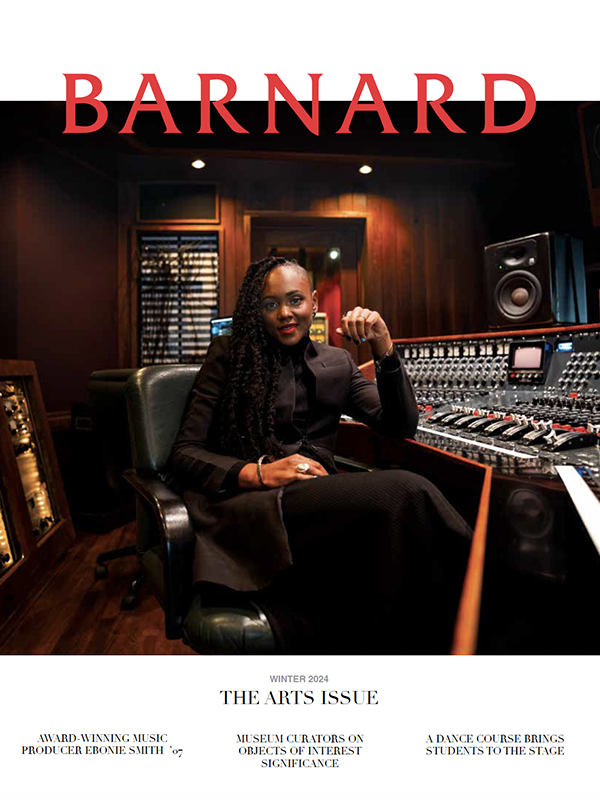As the first female president in the modern-day Balkans, Kosovo’s Atifete Jahjaga feels a particular responsibility to inspire women to public service. It’s especially crucial as the country enters its second decade of rebuilding efforts after the end of its brutal civil war in 1999. “Women are very good at building bridges,” Jahjaga told an audience of more than 300 people who gathered this fall in the Event Oval of The Diana Center for the Women in Public Service Project (WPSP) symposium. “In a country that has experience with conflict...women have shown tremendous will and ability to weave communities back together,” she said.
Jahjaga, who at 37 is the world’s youngest head of state, was the program’s keynote; other speakers included Thailand’s prime minister Yingluck Shinawatra and Finland’s former president, Tarja Halonen. WPSP is a partnership founded by the State Department and leading women’s colleges, including Barnard, with a mission to develop the next generation of female government leaders. Embedded in its motto, “50 by 2050,” is its goal: By the year 2050, half of the world’s civic leadership should be female.
To the State Department’s special representative to Muslim communities, Farah Pandith, achieving this goal means not only pushing to have women in positions of leadership, but also engaging them at all levels of policymaking. “We always hear the conversation about women around the board table, and we need to continue to have that conversation, but we never talk about the fact that there aren’t women around a policy table,” said Pandith, who spoke on a panel moderated by Barnard President Debora Spar.
Also on that panel were Marta Santos Pais, special representative, United Nations Secretary-General on violence against children, and former congresswoman Jane Harman, now the director of the Woodrow Wilson Center, the WPSP partner that is now home to the initiative.
Spar asked Harman: “What does it take to be a great leader?” The director shared about half a dozen ideas. Key among them was the need for women leaders to mentor other women leaders. “When you succeed, your most important obligation is to mentor the women who come after you. Not every woman does this and that’s why the great Madeleine Albright says there’s a cold place in hell for women who don’t help women,” she added, paraphrasing Albright.
This message was underscored by speakers throughout the evening, including Melanne Verveer, U.S. ambassador-at-large for global women’s issues, and Rangita de Silva de Alwis, WPSP’s director. With mentorship for emerging leaders crucial to the project’s mission, one student from each of the eight partner colleges was selected to speak and had the chance to choose an issue for a panelist to address.
The students’ questions focused on a range of topics, from prison reform to the role of women in economic decision-making. Barnard’s student panelist, Olivia Low ’13, asked how policy-making could more fully include women grassroots community leaders. “The HIV-positive mother turned community-health worker, the aspiring member of parliament, the director of a local NGO—these are women with the perspective, pragmatic ideas, and courage needed to effect change, and I believe they have a right to become visible and make decisions about their own lives,” said Low. “The hard question, of course, is how?”
Just how to go about reaching the “50 by 2050” goal is the question that all those involved with the Women and Public Service Project are working to solve. Yet at the root of the project is the belief that health and prosperity can only be achieved by including women at all levels of decision-making. Throughout the program, the speakers cited Secretary of State Hillary Clinton, who spearheaded the creation of WPSP, as a chief source of inspiration. President Jahjaga recalled the words of Secretary Clinton: “You are more likely to succeed if you widen the circle to include a broader range of expertise, experience, and ideas. This is not just about fairness, it is about expanding the pool of talented people to help tackle our biggest problems.”
